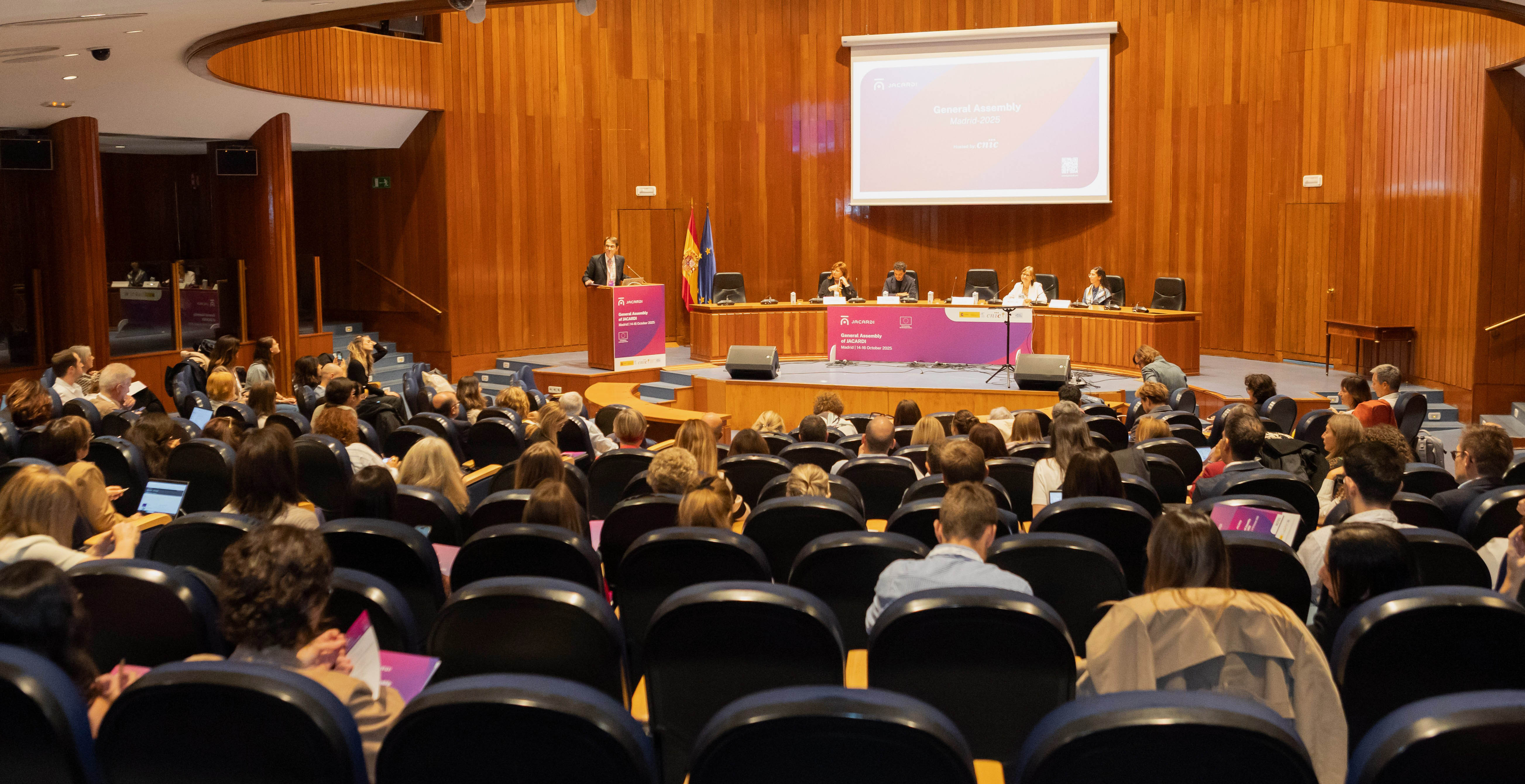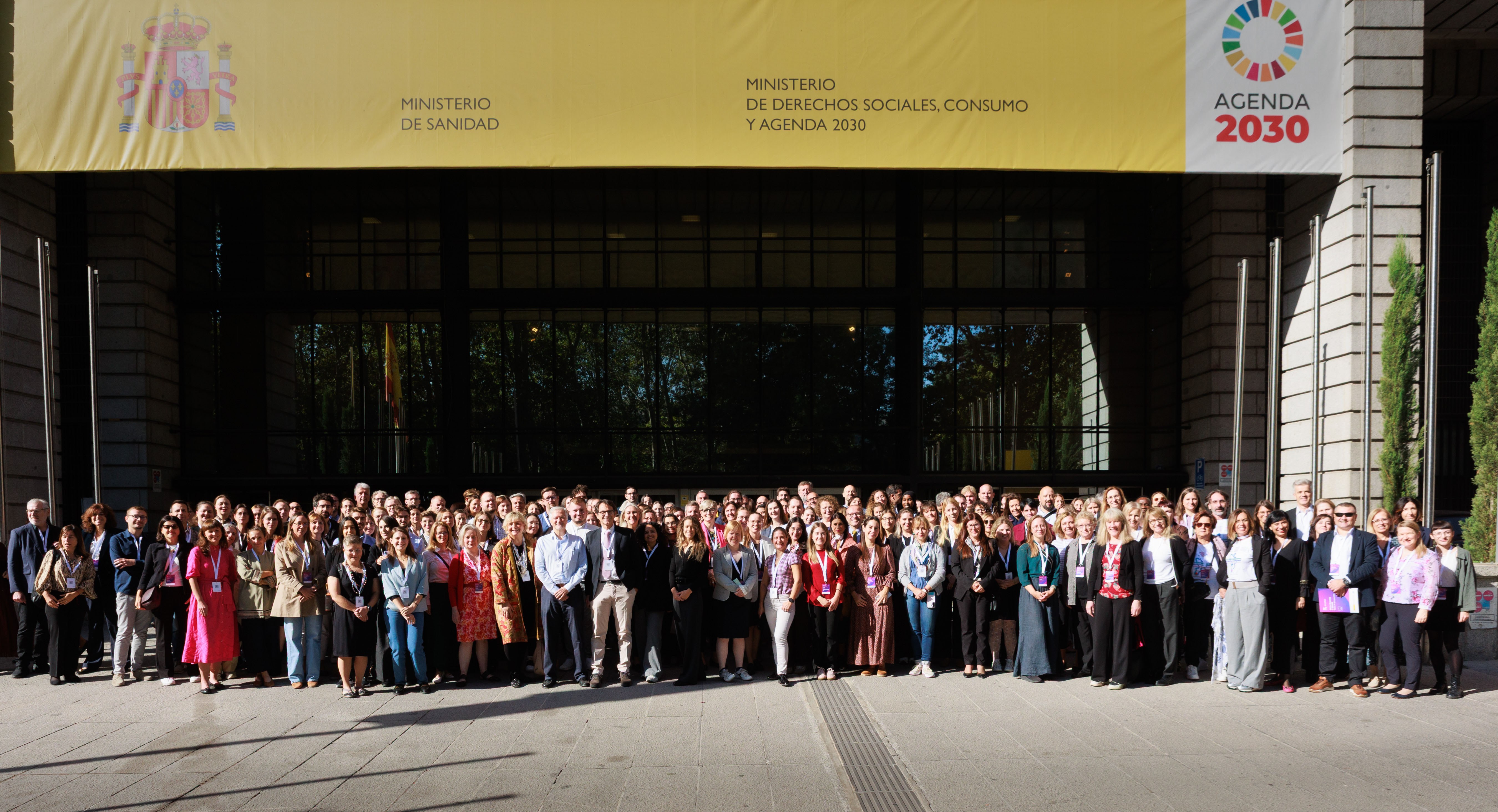Cardiovascular health with a gender perspective: Experts from 21 European countries gather in Madrid for the JACARDI General Assembly
The Spanish National Center for Cardiovascular Research (CNIC) hosted in Madrid the third General Assembly of JACARDI from October 14 to 16
Health equity remains one of Europe's most pressing challenges. Differences in access to care, diagnosis, and treatment continue to determine health outcomes across the region. Gender diversity is emerging as a particularly critical dimension, as women in Europe with cardiovascular disease face worse outcomes, from higher mortality after heart attacks to longer delays in receiving treatment. In addition, data from the European Society of Cardiology (ESC Atlas of Cardiology) reveal that 40% of women in the EU die from cardiovascular disease.
This difficult reality was the focus of discussions during the Third General Assembly of the Joint Action on Cardiovascular Diseases and Diabetes (JACARDI), which the Spanish National Center for Cardiovascular Research (CNIC) organized in Madrid from October 14 to 16, at the headquarters of the Ministry of Health and the Official College of Physicians of Madrid (ICOMEM).
The inauguration was attended by Marina Pollán, director of the Carlos III Health Institute (ISCIII); Dr. Valentín Fuster, general director of the CNIC; Antonio Parenti, director of Public Health at the European Commission (DG Sante); Maria Vasile, representative of the European Executive Agency for Health and Digital (HaDEA); Silvia Torres, general director of Health and Social Care Planning, Training, and Quality at the Regional Ministry of Health and Social Services of Extremadura; and Pedro Gullón, general director of Public Health and Health Equity at the Ministry of Health.

The Assembly brought together more than 200 representatives from 21 European countries, as well as spokespersons from the European Commission, the WHO Regional Office for Europe, scientific societies, and patient organizations. This year's program placed gender and equity at the center of the agenda, along with sustainability, data monitoring, and the upcoming EU Cardiovascular Health Plan.
JACARDI is a joint action of the European Union under the EU4Health program, which will run from 2023 to 2027. With 81 partner institutions in 21 countries, it coordinates European efforts to strengthen health literacy, improve early detection, promote integrated and person-centered care, empower patient self-management, and support the labor participation of people living with noncommunicable diseases.
With equitable access to prevention and quality care as a priority, participants in this assembly reflected on the progress made during the first two years of JACARDI, highlighting lessons learned and obstacles overcome, while improving care pathways in various settings across European health systems.
Focus on equity and diversity
"At the heart of JACARDI is the belief that healthcare systems should serve everyone, fairly and equitably. That is why equity and diversity are not secondary issues at JACARDI, but fundamental to everything we do. This General Assembly in Madrid is an opportunity to show that together we can accelerate change towards a more equitable and healthy future," says Dr. Benedetta Armocida, coordinator of JACARDI.
«Women are more likely to die from a heart attack, yet they remain underrepresented in clinical trials»
“Women are more likely to die from a heart attack, yet they remain underrepresented in clinical trials, leaving significant gaps in knowledge that perpetuate inequality in healthcare. Recognizing gender differences in cardiovascular disease is not about division, but about improving care to meet each person's unique needs,” says Dr. Héctor Bueno, leader of the JACARDI working group on data availability and quality, coordinator of the clinical hospitalization and research area at the i+12 Research Institute at the Hospital 12 de Octubre in Madrid, and leader of a CNIC research group.
European Cardiovascular Health Plan
The meeting took place at a crucial moment, as the European Commission is preparing the Cardiovascular Health Plan. By connecting JACARDI's ideas and pilot experiences with this political momentum, the Assembly aims to strengthen motivation, collaboration, and collective capacity to reduce the burden of noncommunicable diseases across Europe.
To this end, a roundtable discussion dedicated to the EU Cardiovascular Health Plan was held during the event, with the participation of representatives from the European Commission's Directorate-General for Health and Food Safety (DG SANTE), the European Public Health Alliance (EPHA), and scientific societies such as the European Society of Cardiology, the European Heart Network, the European Diabetes Forum, and the International Diabetes Federation.
The event also featured contributions from the WHO Regional Office for Europe and the european JA PreventNCD initiative on systems for monitoring and reducing health inequalities, as well as pilot experiences from Portugal, Spain, Iceland, Romania, Belgium, Ireland, Italy, and Poland, highlighting the initial results of the 143 JACARDI pilot projects.
Finally, areas such as sustainability and the translation of scientific evidence into real policies were explored, ensuring that JACARDI's pilot actions contribute to long-term change. On October 15 and 16, specific sessions were held to explore particular areas of interest, such as health literacy, integrated care pathways, data accessibility, and patient self-management. These workshops were designed to facilitate in-depth discussions and promote practical ideas that improve health outcomes across Europe.
JACARDI has received funding from the EU4Health Program 2021-2027 under Grant Agreement 101126953.












